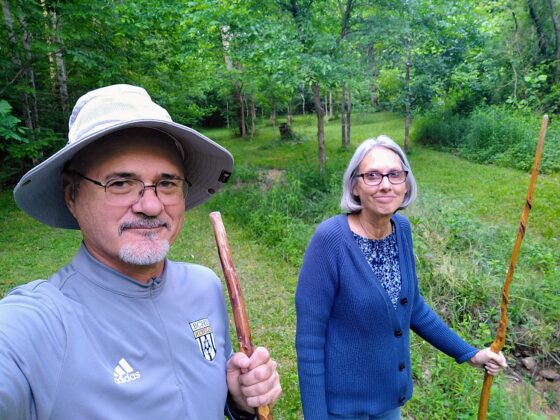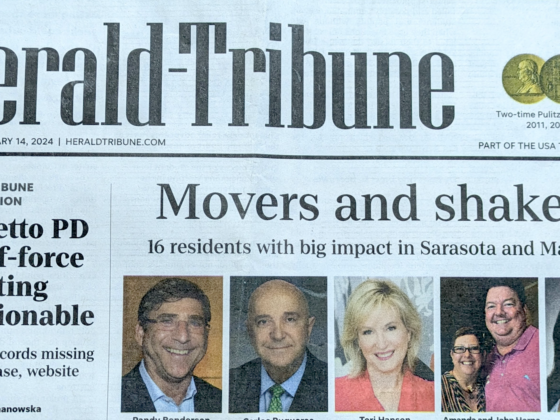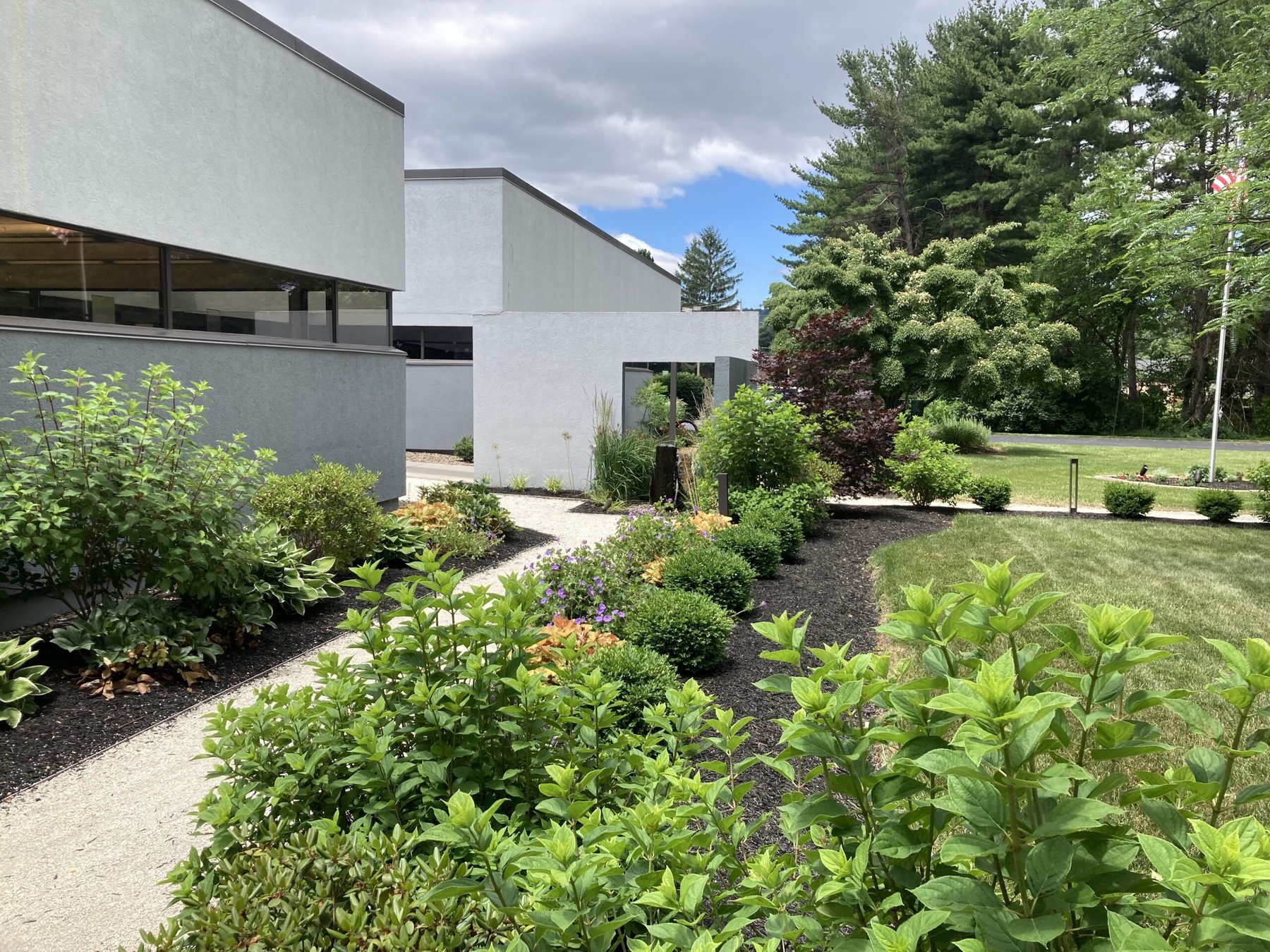In 2008, National Geographic photographer Jodi Cobb and photographer and former Second Lady, Tipper Gore, talked about the role of photography at the then Corcoran Gallery of Art in Washington, DC. The evening was called “How Photos Can Change the World.” Eleven years later, their comments (as reported by David Schonauer in Popular Photography) remain relevant and powerful:
Cobb at one point hinted at the frustration sometimes felt by photographers with high aims. It is one thing to take pictures, she said, and another to do the kind [of] political “heavy lifting” that actually brings about change. Mrs. Gore replied that images are an essential part of the process … [DF: emphasis added]
During our travels with Our Towns and American Futures, Jim Fallows and I have seen many examples where the arts—whether photography, downtown revivals, productions, or memorial parks—are an essential piece, and often a trigger, in the evolution of communities and the lives of those who make or experience it.
Over the years, a number of photography projects have focused on young people as the agents of such evolution or change:
- The 100cameras project, founded in 2009, began putting cameras in the hands of kids who have faced trauma or challenges. The idea was to use photography to help them work through their troubles.
- The Cameras for Kids Foundation gives kids in foster care cameras and lessons to help boost their confidence and skills.
- The Boys and Girls Clubs have long sponsored national photo programs.
- Since 1991, Fotokids also gives cameras to kids in Central America, with a goal to break the cycle of poverty with skills and creation.
Recently, I learned about a locally-grown version of these photo projects from the state of Delaware. It is called the Our Lens Challenge, and we’re naming it another in our series of Big Little Ideas. These are simple, replicable initiatives with far-reaching positive potential. Others in the series are here and here and here.
Here’s how this Big Little Idea works:
The Our Lens Challenge in the state of Delaware is an exercise for young people to use photography to engage with their communities about an issue or an observation that is important to them. High school students learn to make photos, try their hand, choose the best one of their photos, and describe how it captures a perception of their town.
As with other participatory public-arts initiatives that we have seen in towns across the country, this Big Little Idea is an opportunity to contribute a fresh perspective on a community that helps to tell its story. In this case, the bonus is to teach a valuable skill to young people and to invite them to be part of shaping and perhaps even changing the narrative of their hometown.
The Our Lens Challenge team has made it easy for anyone who is interested in trying their Idea, by preparing a set of YouTube videos to guide participants, step by step, through the process. In Delaware, the Challenge was presented as a contest, and the winners would receive a $100 gift certificate from Amazon. A number of groups in Delaware collaborated on the Challenge, although it could be replicated with a leaner operation in your town. Here are the collaborators:
- The Dual School is a program that supplements a school curriculum, to help students identify an issue important to them, and to act on it in a way having a positive impact in the community or world around them.
- Four Youth Productions is an organization that develops programs to encourage, inspire, and train young folks in hands-on ways. In this case, the program is about photography.
- At the University of Delaware, the Human Development and Family Sciences Department, the Horn Entrepreneurship Program, and the Partnership for Arts and Culture teamed up in a Community Engagement Initiative where undergrads could meet with young photographers and help understand how to use social media to promote their work.
- The Delaware Community Foundation (DCF), whose mission is to help build strong communities around the state, was a catalyst and supporter for the entire program. For the record: Jim Fallows and I learned about the Our Lens Challenge when we spoke recently in Wilmington at the invitation of the DCF.
Here are the YouTube videos. (Fair warning: You’ll see references to our book, Our Towns, in a few of the videos.)
Video 1, Our Lens Intro: An introduction to “identify an issue in your community or highlight a bright spot that you want to showcase”
Video 2, Opportunity Discovery: How to be inspired!
Video 3, How to Learn More about Anything: A guide for using interviews and observation to become a master of the issue and help plan how to convey the message in the photo
Video 4, Finding Your Story: An encouragement to share the positive story and spirit of Delaware
Video 5, Photovoice: an overview of how to highlight your message and show your voice through a photo
Video 6, Photo Basics: A walk through a series of photos, pointing out the elements of a photo and what they convey—e.g., how to create a “power pose” of subjects by shooting upward, or how to use lighting or focus to highlight a person or object
Video 7, Caption and Reflection: Writing a title, a caption, and a personal reflection on the story you’re telling through the photo
Video 8, How to Submit Your Entry: The nuts and bolts
Video 9, Challenge Conclusion: Encouragement and congratulations
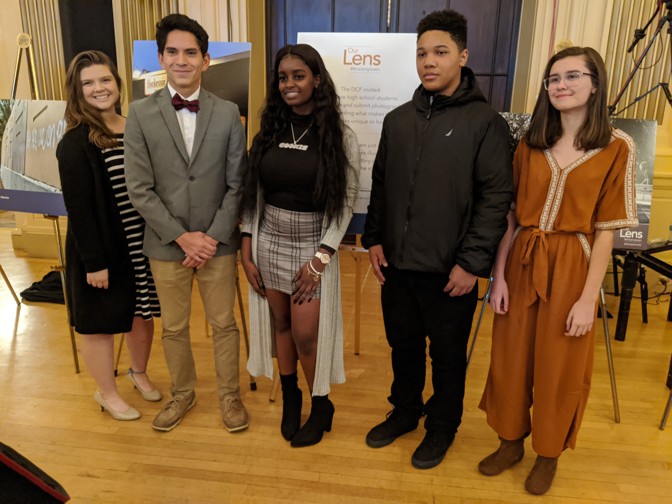
Jim and I were fortunate to view the winning photos and to meet the young winning photographers and some of the organizers of the Challenge. In an email with the infectiously enthusiastic executive director of Dual School, Zack Jones, whom I met in Wilmington, he reflected on his experience with the Our Lens Challenge.
The power of something like the Our Lens Challenge is to tap into (the young people’s) wisdom and invite their voices to contribute to the broader discussion. It also invites young people to see the places they live in a more positive way. It’s a reflective experience to explore your town and think deeply about how you will represent it to an outside observer.
Here are the winning photographs, with descriptions from the student photographers (identified by school and first name) of what they want their images to convey:
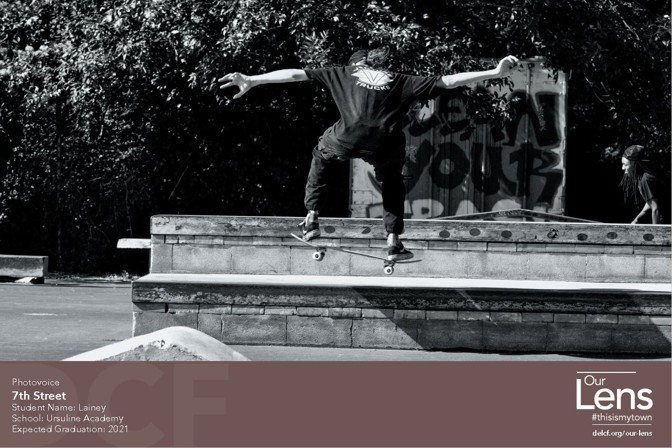
Lainey, Ursuline Academy, Expected Graduation: 2021
Title: 7th Street. Reflection: This photo portrays the sense of community and family that thrives in a tiny cement skate park on 7th street. When someone fell, they were picked up. There were high fives and hugs. The sense of community I felt as an outsider was so powerful. People from all over the city, no matter what age or background come together to form a family. All they know are each other’s names. How much money they make or what sex or race they are, it doesn’t matter. In this skate park, they are who they are and all are welcomed.
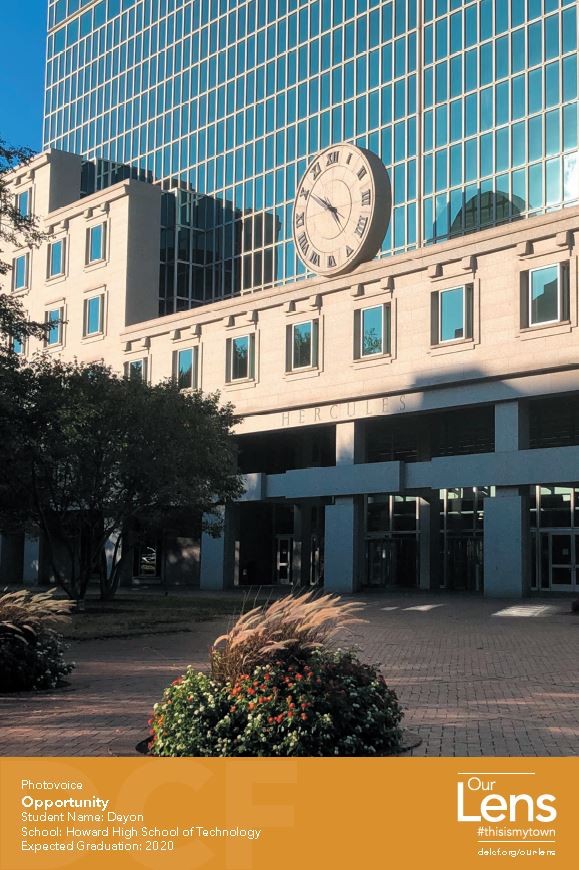
Deyon, Howard High School of Technology, Expected Graduation: 2022
Title: Opportunity. Reflection: This is a photo of the Hercules plaza/building. This place is full of a lot of job opportunities that are age friendly. Many people that are employed here are happy with the work they do and the amount of time they spent working here and would recommend other people to work here.
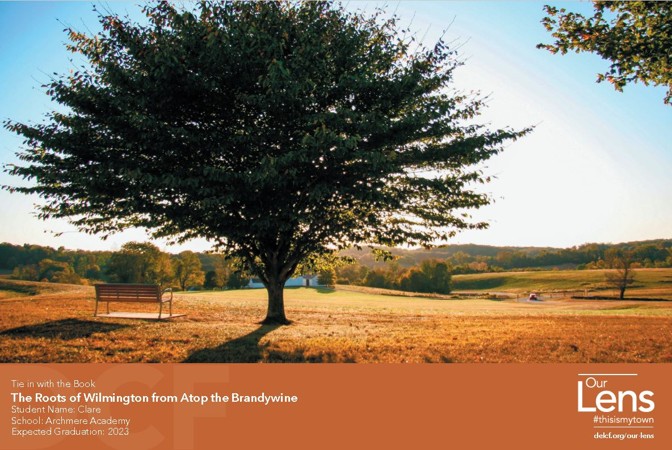
Clare, Archmere Academy, Expected Graduation: 2023
Title: The Roots of Wilmington from Atop the Brandywine. Reflection: This photo captures an overlooking view from a popular point in Brandywine Creek State Park. It not only showcases the widespread natural beauty surrounding Wilmington, but also depicts many of the unique factors of our town. The central, robust tree represents the strength and connection of our community and is a proud reminder of the origins we share. The empty bench is reminiscent of the vast wealth of opportunities awaiting both young and old, while the departing car symbolizes the role our community serves in launching ideas, movements, and change into all corners of the world.
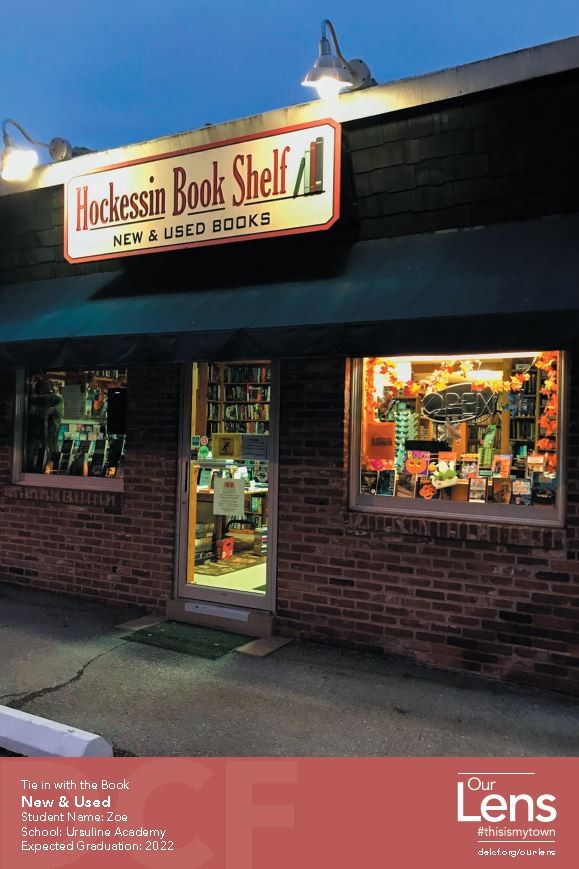
Zoe, Ursuline Academy, Expected Graduation: 2022
Title: New & Used. Reflection: This picture was taken at a bookstore in my hometown called Hockessin Book Shelf. This small but trusty shop could be seen as a representation of my town. With enthusiastic workers that are willing to help you with any questions you might have, the care that they show reflects the passion that my town has. My town has the best of both worlds with both a used and new feel. The small shops similar to this one, you can’t quite replicate this town anywhere else.
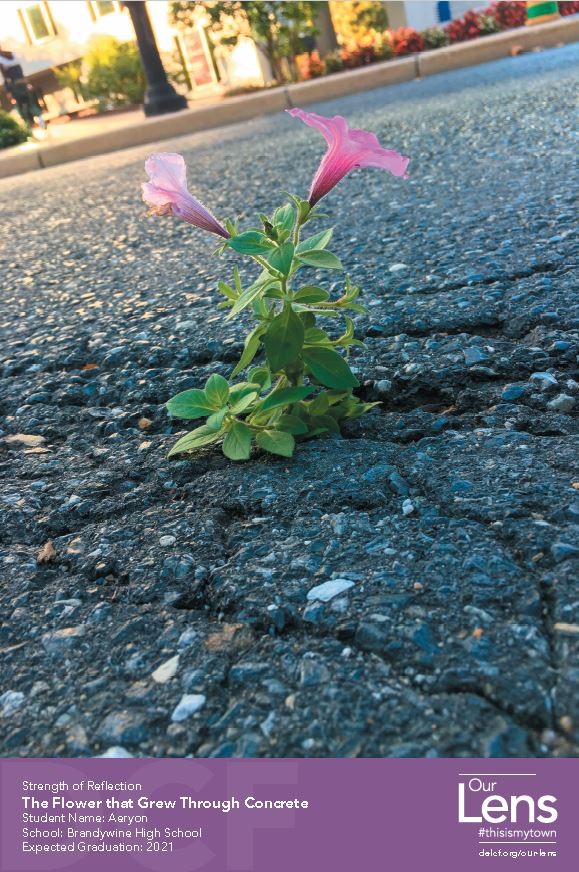
Aeryon, Brandywine High School, Expected Graduation: 2021
Title: The Flower that Grew Through Concrete. Reflection: This flower growing through concrete symbolizes how we are capable of pushing through the obstacles and hardships of our lives. Here in Wilmington, it is so easy (especially for our youth) to be detained by those around us and distracted from achieving our dreams. Stay focused and give 110% in everything you do! Hard work and keeping your end goal in mind will allow you to blossom into a successful person from a rough city. A flower that grew through concrete.
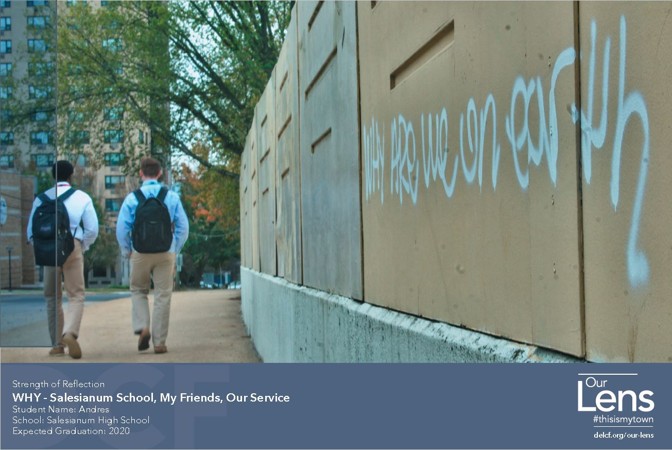
Andrés, Salesianum High School, Expected Graduation: 2020
Title: WHY – Salesianum School, My Friends, Our Service. Reflection: Why? Seeing these words inspired me and my friends and allowed us to reflect on the true reason we were there that day: to walk to our newest service opportunity. Thus, as ambiguous as the question “Why?” may seem, our answer is to help others and be there for our fellow community members. With our school and the rest of Wilmington in the background, the numerous aspects of this image represent an intersection of my school life and the culture, the friendship, the empathy, and the collaboration that is present all across Wilmington. The commitment of my classmates to serving those in need—and now this symbol that reminds me of our collective work—that is what makes my community special.


